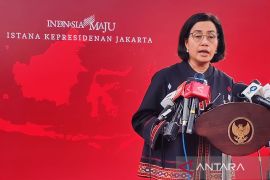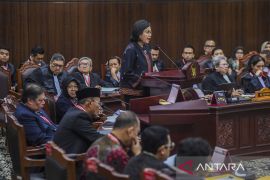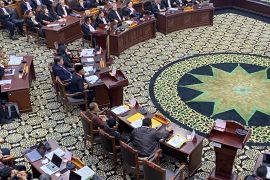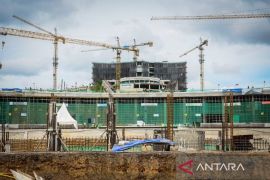"The basis of growth in Q1 was already higher than last year`s and the potential for higher growth in the next quarter was bigger," Finance Minister Bambang Brodjonegoro said.Jakarta (ANTARA News) - Finance Minister Bambang Brodjonegoro has expressed optimism for the expected economic growth in the second quarter, saying it would be better, although the countrys economy grew by only 4.92 percent in the first quarter.
Bambang said the economic growth target could still be achieved because growth in the first quarter was better than the same period last year.
"The basis of growth in Q1 was already higher than last years and the potential for higher growth in the next quarter was bigger," he said when contacted to comment on the issue.
Bambang explained that one of the causes of the lower-than-expected growth in the first quarter was weaker household consumption, owing to lower public demand and buying power.
In view of that, he said one of the efforts to increase economic performance would be to boost public buying power so that the household consumption sector contributes maximally to growth.
"The slow growth in consumption has occurred because of the impact of income while the public still holds off greater consumption. So bigger government spending is needed and non-taxable income level needs to be raised by 50 percent," he said.
The Central Bureau of Statistics has reported that household consumption slowed down in the first quarter, resulting in the economy growing only 4.92 percent, down from usual 5 percent.
It also noted that all groups of businesses were seeing weakened performance, except transportation and communication, as well as the restaurant and hotel sectors.
However, household consumption is still the biggest contributor to the Gross Domestic Product, its share recorded at 56.86 percent in the first quarter, followed by fixed capital formation (PMTB) at 33.16 percent and exports at 18.78 percent.
Overall economic growth in the first quarter was driven more by non-profit institutions consumption that households (LNPRT), which grew 6.38 percent, while PMTB grew by 5.57 percent, household consumption by 4.94 percent and government consumption by 2.93 percent.
Exports and imports still contracted, respectively by negative 3.88 percent and 4.24 percent in line with the economic slowdown in the export destination countries and the drop of commodity prices, as well as weak domestic demand and the rupiah's depreciation.(*)
Editor: Heru Purwanto
Copyright © ANTARA 2016












